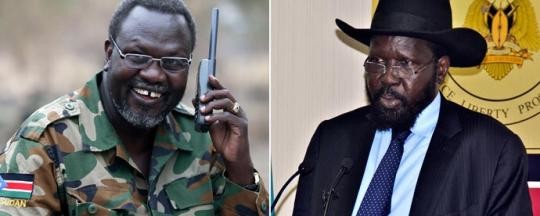IGAD has released a new proposal for South Sudan’s warring parties to share power in a transitional government.
The deal, linked for download below, proposes that President Salva Kiir remains as president and executive head of state for a 30 month transitional period, while the SPLM-In Opposition of Riek Machar would get to fill a new position of “First Vice-Preisdent.”
Kiir’s side would receive 53% of national ministerial positions, while the SPLM-In Opposition of former vice president Riek Machar’s would receive 33%. The rest of the ministries would be split up between other political parties and the SPLM-G10 Former Detainees group led by Pagan Amum.
Parliament would be expanded from 332 members to 400. Of the newly established seats, Machar’s side would get 50 and other political parties would get 17. The SPLM-G10 would get 1 seat.
Regarding the states, IGAD proposed that the SPLM-IO would receive governorships of Unity, Upper Nile, and Jonglei states, as well as 53% of state council of ministers positions for those three states. Kiir’s side would get 33%, with the SPLM-G10 and other political parties splitting the leftover 14% evenly.
Kiir has previously ruled out any power sharing deal giving Machar a first vice president or prime minister position, saying he does not want to force current Vice President Wani Igga to step aside. Machar’s supporters, meanwhile, contend that Kiir must step down from his position as head of state due to allegations that he ordered atrocities.
IGAD says that if the warring factions sign the agreement, they will have 72 hours to implement a ceasefire and withdraw all foreign troops. The two armies (SPLA and SPLA-In Opposition) would have to reintegrate in 18 months.
Juba demilitarized
Once the transitional government is formed, the capital Juba would be placed under security of an international body such as the AU, UN, or IGAD for a 90-day period in order to ensure that the SPLM-IO and SPLM-G10 can return safely.
The IGAD proposal also includes provisions for humanitarian aid; truth, reconciliation and healing; as well as an internationally-advised oversight committee to manage the country’s finances.
Further, a Hybrid Court for South Sudan would be set up with jurisdiction to try people accused of genocide, crimes against humanity, war crimes, or other serious crimes under international law. The judges of this court would be appointed by the chairperson of the African Union and the secretary general of the United Nations.




